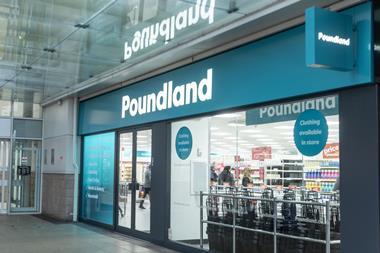As changes to hybrid working – whether through guidelines or rules – play out across much of the industry, Retail Week has compiled the in-office days from some of the biggest retailers in the UK
Working hard or hardly working? Whether staff should spend most of their working week at home or not has become a hot topic in the past year as retailers iron out their hybrid policies in a post-pandemic world.
Some retailers have caused outrage by asking head-office staff to return for five days a week, wreaking havoc with childcare plans and commute spend in the process, while others have doubled down on flexibility, allowing staff to make up their own minds as to when and where they’ll be spending the week.
How many days do the UK’s biggest retailers spend in the office?
This article was originally published in August 2024, the table was last updated in June 2025.
Notes: This data was collected using a combination of staff interviews, retailer statements provided to Retail Week and online workplace reviews. All retailers included review requests for fully remote working if the role can be performed outside the office. Some retailers have mandatory office days, while others encourage but don’t police office attendance. In most cases, within retailers that offer hybrid working and fully flexible working, teams will decide the frequency of office days on a case-by-case basis, and they are subject to change.
Flexing it
Several retailers on our list are fully flexible, meaning they do not encourage attendance for a set number of days or force staff to be in the office week by week.
Instead, these retailers allow teams to decide for themselves how frequently – or infrequently – they should spend time together in the office.
Currys falls into that category and says it has embraced the new world of hybrid working.
“Currys is fully committed to hybrid working,” says a spokesman. “Harnessing the very best of in-person and remote working is central to our people strategy as a business and has transformed the way we work.
“This move to a more flexible approach to working has been a great success, with our colleagues repeatedly telling us how positive their experiences of this flexibility are, opening up a highly engaged, nationwide talent pool.”
The retailer has also moved its HQ into a co-working space, which grants access to a Currys office in central London as well as the ability for staff to pop into any of the co-working space’s branches across the country.
“Co-working in a central location helps us to attract the right people – the space is quite literally a talent magnet,” says the spokesman.
“The dedicated Currys office within WeWork can accommodate about 230 of our 1,400 corporate employees, with 90 more passes available for other WeWork sites across the country, enabling colleagues to access professional workspaces outside the capital, too.
“This means that a quarter of our corporate workers can work in-person on any given day. However, we don’t mandate people to be in the office on specific days, which is a big sell.”
Back to the office
A handful of retailers have gone back to pre-pandemic working styles, asking staff to be in the office five days per week.

THG made waves when it announced that all employees working at its Manchester head office were required to return every weekday.
In an email seen by Retail Week, THG chief people officer Konrad Hill told staff that the company had observed inconsistencies in adherence to its previous policy, which required employees to come into the office for four days a week with an option to work from home one day a week subject to prior approval.
The group, which owns Lookfantastic, Cult Beauty and Myprotein, said: “At THG, face-to-face interaction has a hugely positive impact on our business environment and results in a dynamic and vibrant atmosphere in our offices.
“We therefore took the decision to return to a more regular, pre-Covid way of working and we will be asking our valued employees to attend the office five days per week.
“We will, of course, take into account any personal circumstances, but strongly believe this move will continue to ensure THG remains an exciting and engaging place to work where colleagues can come together to collaborate.”
Boots also caused a stir when it ordered all head-office staff to return to the office five days a week, starting this September.
Managing director Seb James said in an email to staff at the time: “In line with a majority of UK businesses, I want to start a thoughtful plan that gets us back to the office – whether Nottingham, London or Weybridge – being the normal place of work for everybody for the whole working week.
“I have been very heartened by the way people have embraced the three-days-a-week model and I think that you will agree that the office is a much more fun and inspiring place on those days.
“There is no doubt in my mind that the informal conversations, brief catch-ups and ability to meet in groups in person have been far more effective – and better for our unique Boots culture – than the enforced formality of remote meetings. I know that has been true for me.”
The UK’s biggest retailers have taken very different approaches to the issue of hybrid working and they’ll all be keeping a close eye over the coming year to see if these approaches pay off.


























1 Reader's comment